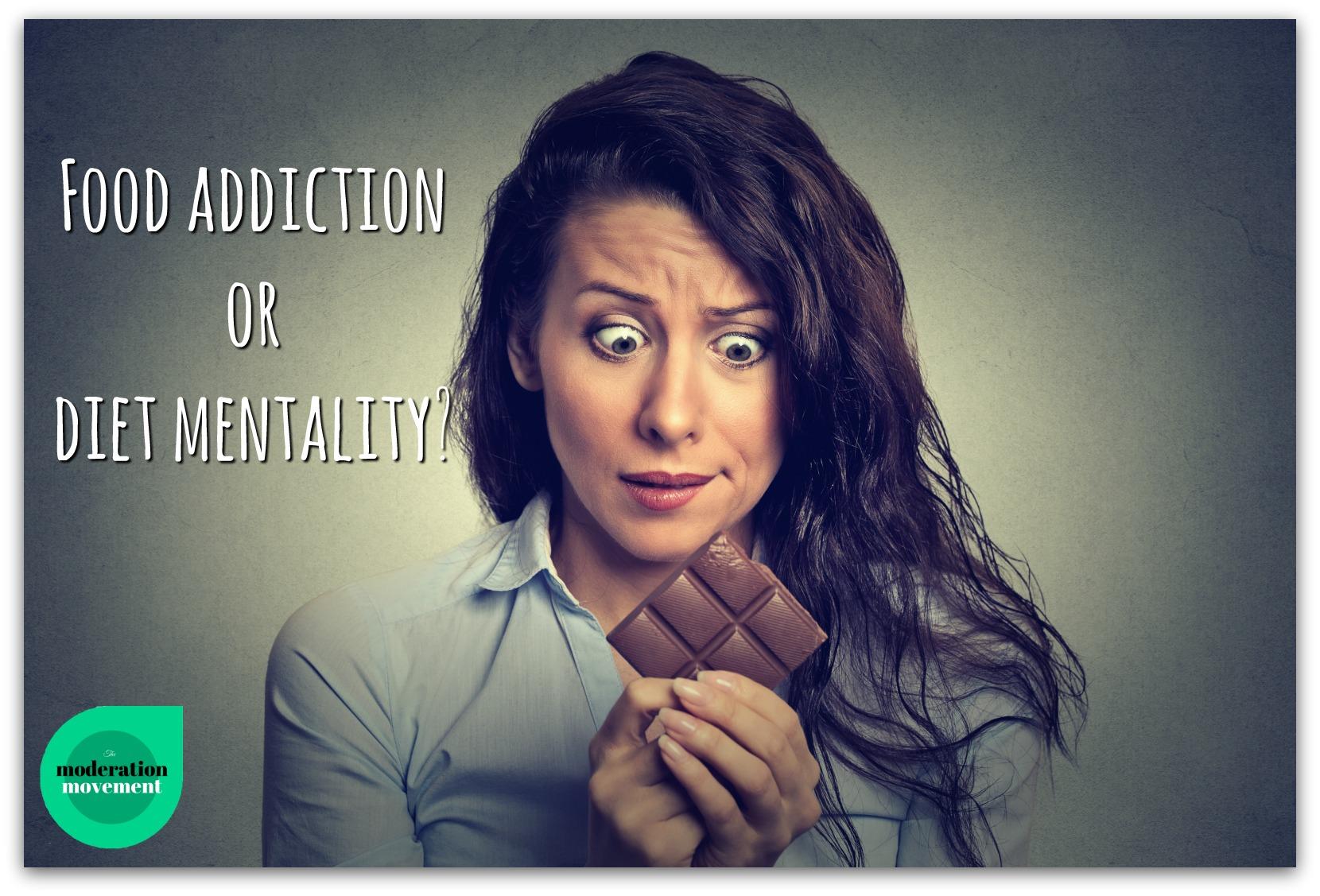Food addiction or diet mentality?

I am writing this after listening to an interesting show on ABC 774 Melbourne which spoke about food addiction. This is an area in which I am curious to learn more, my purpose for posting this is not to dispute the theory of food addiction, but rather to discuss that there are many people who say they feel addicted to some food, but that this is more a result of the diet culture we live in, or due psychological drivers, than actual addiction.
Over the years I have seen hundreds of people who said that they couldn’t control themselves around certain food, discover that indeed they can once they shook off the diet mentality or learned to manage their psychological triggers.
We live in a weight and diet obsessed world where food is often seen as “bad” especially with regard to body weight. This has led many people to develop a diet mentality where eating certain food (e.g. chocolate) is associated with “being bad” or gaining weight.
However, it is entirely possible to eat chocolate and not gain weight, and no, you are not a bad person for doing so. Two key problems with diet mentality are the restriction of food and the focus on weight loss. Consider these points.
Food restriction – After a period of restricting food, people nearly always end up having a blow-out or binge.
Weight loss – Focusing on weight loss often leads to food restriction (aka dieting) which then leads to a blow-out. Even when people do achieve weight loss, research shows that nearly all these people will regain the weight (often plus more) and when people stop losing weight, or regain weight, they feel they’ve failed and are more likely to fall into the “what the hell” trap – which inevitably leads to a blow-out. The other issue with dieting is the commonly seen “last supper” effect, where dieters often have a splurge or binge on food before they start their next diet. If you have ever dieted, you’ll know what I am talking about.
Many people also turn to food as a form of self care. This is called emotional eating where a person eats to cope with unpleasant thoughts and feelings. By identifying and learning how to manage the underlying emotions, many people find their desire to emotionally eat lessens.
Therefore, for many people, learning how to let go of diet mentality and weight focus, and learning to manage emotional eating, can help with issues around over-eating. Letting go of diet mentality and managing emotional eating can be challenging in our diet and weight obsessed culture, dietitians who use a non-diet approach can help you do this.
